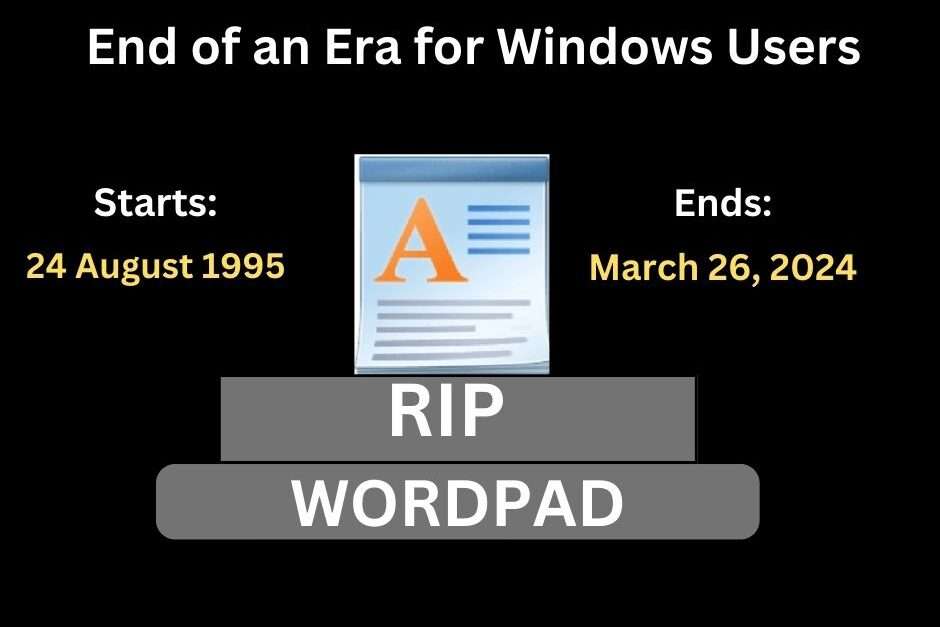After nearly three decades since its launch with Windows 95, WordPad is bidding farewell as it is set to be removed from Windows 11. Microsoft’s decision to phase out this iconic rich text editor has raised questions about the future of text editing for Windows users.

The Legacy of WordPad
It has been an integral part of the Windows experience for many users, providing a simple yet functional platform for basic document creation and editing. Its impending departure marks the end of an era, prompting us to reflect on its longstanding role in the Windows ecosystem.
Windows 11 24H2 Update: The Timeline
Microsoft recently announced that WordPad will be eliminated starting with Windows 11 version 24H2, scheduled for release in the second half of 2024. This signifies a significant shift, as it marks the first version of Windows 11 to debut without the presence of this beloved text editor.
A Nostalgic Farewell
As users bid adieu to WordPad, it’s essential to acknowledge its contributions over the years. Despite its UI remaining unchanged and features stagnant, It has been a familiar companion for users, evoking a sense of nostalgia associated with its historical significance.
Embracing the Future
With the impending departure of WordPad, it’s crucial for Windows users to explore alternative solutions for text editing. Notepad, a plain-text editor that remains part of Windows, will continue to serve as a viable option. However, it lacks the rich formatting options offered by WordPad. As a result, users may need to transition to third-party applications such as Google Docs or Microsoft 365 Online for robust rich text editing capabilities.
The Road Ahead
As we prepare for a future without WordPad, it’s essential to adapt to the changing landscape of text editing on Windows. Users must embrace alternative platforms that cater to their formatting needs. Whether it’s exploring online applications or transitioning to free office suites, the departure of WordPad signifies a shift towards more modern and feature-rich text editing experiences.
The imminent removal of WordPad from Windows 11 signifies the end of an era for one of Windows’ longstanding applications. As we bid farewell to this iconic text editor, it’s imperative for users to embrace alternative solutions and adapt to the evolving landscape of text editing. Windows users can look towards third-party offerings and online platforms to fulfill their rich text editing needs, ensuring a seamless transition in a post-WordPad era.
The departure of WordPad may evoke nostalgia, but it also presents an opportunity for users to explore modern alternatives that cater to their rich text editing requirements. Embracing change is essential as we usher in a new chapter in the realm of Windows text editing.

